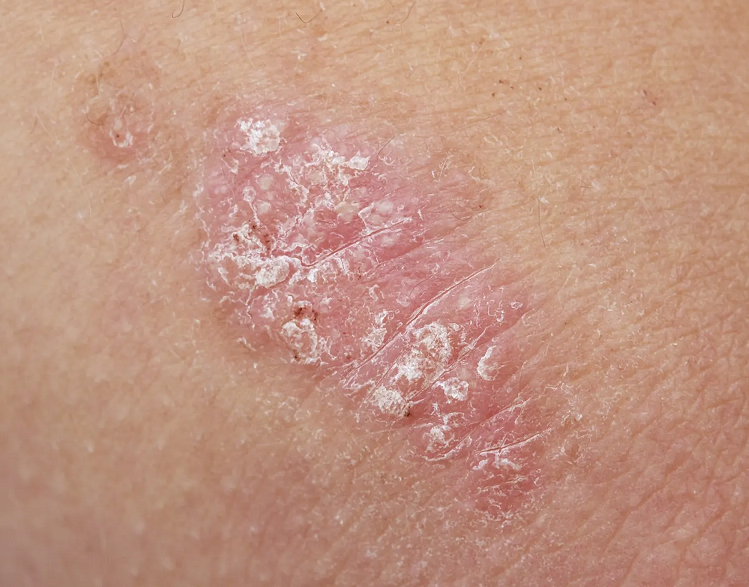
Psoriasis is a chronic skin problem that causes skin cells to grow too quickly, resulting in thick, white, silvery, or red patches of skin.
Normally, skin cells grow gradually and flake off about every 4 weeks. New skin cells grow to replace the outer layers of the skin as they shed. But in psoriasis, new skin cells move rapidly to the surface of the skin in days rather than weeks. They build up and form thick patches called plaques. The patches range in size from small to large. They most often appear on the knees, elbows, scalp, hands, feet, or lower back. Psoriasis is most common in adults. But children and teens can get it too.
Homeopathy is the most popular system of medicine for treatment of psoriasis. The selection of remedy is based upon the theory of individualization and symptoms similarity by using holistic approach.
This is the only way through which a state of complete health can be regained by removing all the sign and symptoms from which the patient is suffering. The aim of homeopathy is not only to treat psoriasis but to address its underlying cause and individual susceptibility. As far as therapeutic medication is concerned; several well-proved remedies are available for psoriasis treatment that can be selected on the basis of cause, location, sensation, modalities and extension of the psoriasis.
We, at Homoeo Clinic, are successfully treating patients with Psoriasis by prescribing constitutional Homoeopathic remedy on the basis of totality of symptoms which are capable of working on the joints and system. An overall feeling of well being is reported by most after commencing treatment and this is an important marker that the treatment is moving along the right path.
One of the main advantages of the treatment is that it is without any side effects and it is non habit – forming. Patients can conclude the treatment once they remain symptom free for an appropriate time period with continued medication. Homoeopathy is strongly suggested for all cases of arthritis.
It is also important to avoid those things that can cause psoriasis symptoms to flare up or make the condition worse. Things to avoid include: